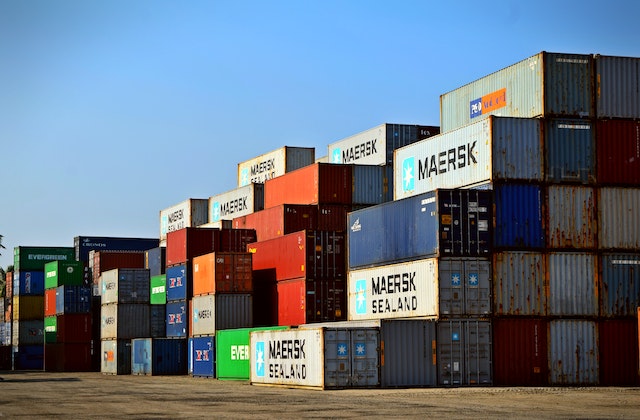n today’s rapidly changing business landscape, risk is an inevitable aspect of every enterprise. To safeguard themselves from potential financial losses, businesses need to consider commercial insurance. This comprehensive guide explores the ins and outs of commercial insurance, its significance for businesses, and the coverage options available. Whether you are a seasoned entrepreneur or a new business owner, this guide will equip you with essential knowledge to protect your business interests.
What is Commercial Insurance?
Commercial insurance, also known as business insurance, is a type of coverage designed to protect businesses from various risks and liabilities. It provides financial protection in case of property damage, bodily injury, legal expenses, or other unforeseen events that may occur during business operations. By paying regular premiums, businesses transfer the potential risks to an insurance provider, which assumes the financial responsibility in case of covered incidents.
The Importance of Commercial Insurance
Commercial insurance plays a pivotal role in ensuring the stability and continuity of businesses. Here are some key reasons why it is essential:
1. Protecting Business Assets
Commercial insurance safeguards business assets, including property, equipment, and inventory, against damages caused by fire, theft, natural disasters, or vandalism.
2. Liability Coverage
In the litigious world we live in, businesses face the risk of lawsuits from customers, employees, or other stakeholders. Liability coverage offered by commercial insurance shields businesses from legal expenses and settlements arising from such lawsuits.
3. Business Interruption Coverage
In the event of a covered incident that disrupts business operations, business interruption coverage compensates for lost income and ongoing expenses, ensuring business continuity during challenging times.
4. Employee Protection
Commercial insurance can also include coverage for employees, such as workers’ compensation, which provides financial assistance in case of work-related injuries or illnesses.
5. Building Trust with Stakeholders
Having commercial insurance instills confidence in customers, suppliers, and partners, as it demonstrates that your business is prepared to handle unforeseen circumstances responsibly.
Understanding Different Types of Commercial Insurance
There are various types of commercial insurance policies available, each tailored to address specific business needs. Here are some common types:
1. Property Insurance
Property insurance covers physical assets, including buildings, equipment, and inventory, against damage or loss due to covered events like fire, theft, or storms.
2. General Liability Insurance
General liability insurance protects businesses from legal claims related to bodily injury, property damage, advertising mistakes, and more.
3. Professional Liability Insurance (Errors & Omissions Insurance)
Professional liability insurance is essential for service-based businesses, protecting against claims of negligence, errors, or omissions in providing professional services.
4. Commercial Auto Insurance
Commercial auto insurance covers vehicles used for business purposes in case of accidents or damages.
5. Workers’ Compensation Insurance
Workers’ compensation insurance compensates employees for medical expenses and lost wages due to work-related injuries or illnesses.
6. Cyber Insurance
With the increasing reliance on technology, cyber insurance protects businesses from losses due to cyber-attacks, data breaches, or privacy violations.
7. Directors and Officers (D&O) Insurance
D&O insurance provides coverage for the personal assets of directors and officers in case of legal actions taken against them for alleged wrongful acts.
Factors Affecting Commercial Insurance Premiums
The cost of commercial insurance premiums depends on several factors. Let’s explore some key elements that insurers consider:
1. Business Type and Size
Different industries face varying levels of risk. Insurance providers assess the nature of the business and its size to determine the appropriate coverage and premium.
2. Location
The geographic location of a business can influence its insurance premiums. Areas prone to natural disasters or higher crime rates may lead to increased premiums.
3. Claims History
A business’s claims history plays a significant role in premium calculation. A history of frequent claims may result in higher premiums.
4. Coverage Limits and Deductibles
Higher coverage limits and lower deductibles generally lead to higher premiums.
5. Security Measures
Implementing security measures, such as surveillance systems or fire alarms, can help reduce insurance costs by mitigating potential risks.
6. Employee Safety Measures
Insurers consider the safety measures implemented by a business to reduce the risk of employee injuries and illnesses.
FAQs (Frequently Asked Questions)
FAQ 1: Is Commercial Insurance Mandatory for All Businesses?
No, the requirement for commercial insurance varies based on factors such as the type of business, industry regulations, and state laws. However, some types of insurance, like workers’ compensation, may be legally mandated in certain jurisdictions.
FAQ 2: Can Small Businesses Benefit from Commercial Insurance?
Yes, commercial insurance is crucial for small businesses as they are equally exposed to risks and uncertainties. Adequate coverage can protect small businesses from potential financial losses and legal liabilities.
FAQ 3: What Does Commercial Property Insurance Cover?
Commercial property insurance covers physical assets like buildings, equipment, inventory, and furniture from damages caused by covered events such as fire, theft, vandalism, and natural disasters.
FAQ 4: How Can I Find the Right Commercial Insurance Policy for My Business?
To find the right policy, consider assessing your business’s specific needs, risks, and budget. Consult with an experienced insurance agent or broker to explore suitable coverage options.
FAQ 5: Can I Modify My Commercial Insurance Policy as My Business Grows?
Yes, as your business evolves, you may need to adjust your insurance coverage to align with new risks and expanded operations. Review your policy regularly and update it accordingly.
FAQ 6: How Can I Reduce Commercial Insurance Premiums?
Implementing safety measures, maintaining a claims-free history, and comparing quotes from different insurers are some ways to potentially reduce commercial insurance premiums.
Conclusion
Commercial insurance is a critical aspect of risk management for businesses of all sizes and industries. By providing financial protection against potential risks and liabilities, it ensures business continuity and fosters confidence among stakeholders. When choosing a commercial insurance policy, consider your business’s unique needs and consult with insurance experts to make informed decisions. Embrace commercial insurance as a strategic investment to safeguard your business’s future and thrive in the dynamic world of entrepreneurship.
